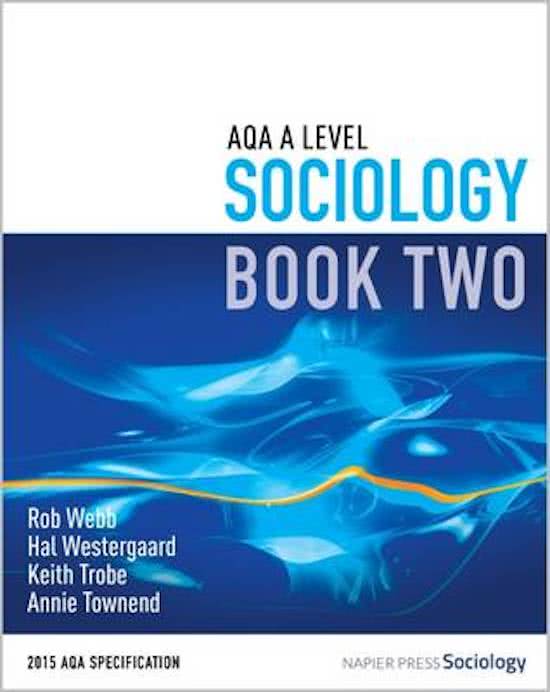Study guide
AQA Sociology A level Paper 3: Theories & Methods (Topics 3 - 10)
A* Sociology Student :)
Topics include:
3. Sociology & Science
4. Objectivity & Values
5. Functionalism
6. Marxism
7. Feminism
8. Action Theories
9. Globalisation
10. Sociology & Social Policy
[Show more]
Preview 4 out of 27 pages
Uploaded on
May 3, 2019
Number of pages
27
Written in
2017/2018
Type
Study guide
Book Title: AQA A Level Sociology Book One Including AS Level
Author(s): Rob Webb, Hal Westergaard
Edition: juli 2016 ISBN: 9780954007928 Edition: 1
Essay
A* AQA answers on sociology paper 3 (2023)
Class notes
A* student detailed notes on ethnicity and crime
Class notes
A* student detailed notes on Gender crime
All for this textbook (43)
Study Level
A/AS Level
Examinator
AQA
Subject
Sociology
Unit
Unit 4 SCLY4 - Crime and Deviance with Theory and Methods; Stratification and Differentiation with Theory and Methods
All documents for this subject (274)
By: shaniaprickett • 3 year ago
By: alexdawe2 • 5 year ago
SOCIOLOGY & SCIENCE .





